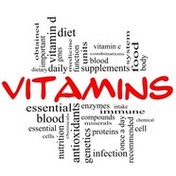
Deficiency of vitamin A is frequently found among the elderly, those chronically sick and the malnourished.
Among the first signs of vitamin A deficiency are: dry skin, dry hair, broken/brittle nails, impaired visual adaptation to darkness, decreased resistance to various infections(especially diarrheal and respiratory infections), infertility secondary to abnormal spermatogenesis, spontaneous abortion (due to secondary abnormal fetal development) and fatigue (excessive tiredness).
Other signs/symptoms of lack of vitamin A:
- pruritus (itchiness)
- keratomalacia (softening, drying and ulceration of the cornea) resulting in altered vision
- xerophthalmia ("dry eyes" - reduced lacrimation)
- anaemia
- excessive deposition of bone at periostum level (periostum = a layer rich in very small blood vessels covering the bone structures)
Causes of vitamin A deficiency:
- cystic fibrosis (a hereditary disorder affecting the exocrine glands)
- cholestasis (delayed evacuation of bile from the gallblader)
- certain small-bowel surgery (by-pass surgery)
- fat malabsorption (reduced absorption of fat from the bowels)
- pancreatic insuficiency (of the exocrine pancreas - not related to insulin production)
- irritable bowel syndrome (IBS)
- sprue (coeliac disease or a tropical disease of unknown cause manifested by diarrhoea and malabsorption of nutrients from the intestines)
- vegan diet (containing only vegetable food)
- alcoholism
- young or very young persons living in poverty

 RSS Feed
RSS Feed